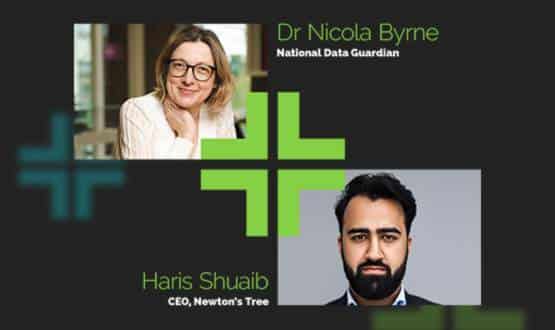Government seeks new national data guardian to oversee NHS
- 14 August 2020

The Department of Health and Social Care is seeking a new national data guardian to oversee the collection and use of patient data.
The data guardian is expected to act as an independent champion for patients and the public, ensuring people’s information is kept securely and shared appropriately.
The successful applicant, chosen by a panel including NHSX chief Matthew Gould and deputy director of data an information governance policy, Simon Madden, will replace Dame Fiona Caldicott who was appointed the first national data guardian (NDG) in 2014.
The role is offered at £45,000 per annum, working two to three days per week.
Applicants must be able to demonstrate a successful track record of leadership; understanding of technology; strong communication skills; and independent and impartial judgement.
They will be expected to have an “understanding and experience of the practicalities of the security and use of sensitive data and the evolving technology that underpins it”.
“This is a high-profile role which would ideally be filled by someone with knowledge of health and social care organisations and the system, the information governance framework within which they operate and in particular the common law duty of confidentiality, how modern information technology can impact on the privacy of individuals, and public attitudes towards the use of health and care data,” the application states.
Since 2018 the role has had statutory footing, granting it the power to issue official guidance about the processing of health and adult social care data in England.
This means public bodies, such as hospitals, GPs, care homes, planners and commissioners of services, will have to take note of guidance that is relevant to them, as will organisations such as private companies or charities which are delivering services for the NHS or publicly funded adult social care.
The NDG aims to build trust in three main areas:
- Encouraging clinicians to share information to enable joined-up care
- Ensure citizens know how their health and care data is being used
- Building a dialogue with the public about how information should be used
Applications close on 3 September, with interview processes expected to begin on 23 September.
Since her appointment as national data guardian in 2014, Dame Fiona Caldicott has been instrumental in changing the way data is shared within the NHS.
The government’s controversial Care.data programme was scrapped following the Caldicott review, which examined security and information governance in the NHS.
The report was handed down in July 2016 with 10 recommendations including that trusts should make security control as high a priority as financial control, and a significantly tougher Information Governance Toolkit for trusts.
The government’s much anticipated response came a year later, with £21 million of capital funds investment to strengthen cyber-protection in addition to the £50 million in funding already already promised for NHS cyber security.




3 Comments
“The data guardian is expected to act as an independent champion for patients and the public, ensuring people’s information is kept securely and shared appropriately.
The successful applicant, [will be] chosen by a panel including NHSX chief Matthew Gould and deputy director of data an information governance policy, Simon Madden.”
This description of the role of the NDG is totally fraudulent. As the membership of the selection panel strongly suggests, the role has nothing whatever to do with being an independent champion of patients. The NDG always has been and always will be an instrument of the Government, used by them to ensure that nobody can defend their information rights against the NHS, or successfully oppose any element of the Government’s policy of taking possession and full control of everyone’s health and care records, so that they may do with these records whatever they please. To this end, the NDG is used to deceive NHS patients and the public as and when necessary, which is comprehensively, all of the time.
We desperately need some help here in Manchester as Manchester have accelerated the deployment of the GM Care Record for all 2.8million people.
The project has been overseen by Health Innovation Manchester and the GM Health and Social Care Partnership they all seem to be able to to do what ever they like with out informing patients.
I sympathize – I think we all desperately need some help, but the Government is absolutely determined that there should not be any help. I spent five and a half years doing nothing but trying to get some help from somebody, and I left no stone unturned from the local CCG to the Lord Chancellor, and everyone in between. all this yielded was a hundred ways of ignoring me. My GP had told me in 2014 that, if I wanted confidentiality, the only way to get it was not to have an NHS record. After fighting a one man war for five and a half years, I finally had to acknowledge that my GP was right. I am now redirecting my efforts to avoiding having an NHS record, which of course means having no access to healthcare. The system is engineered so that there is no other option.
Comments are closed.